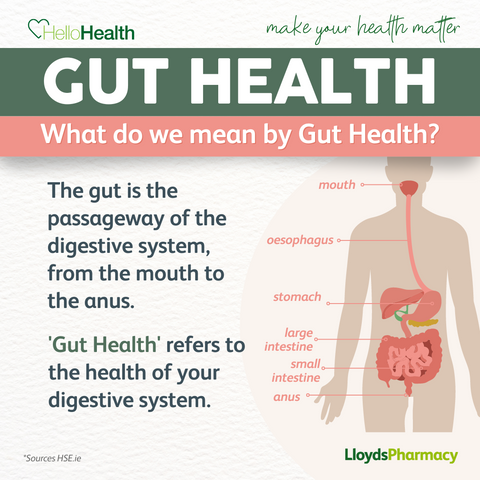Exploring the Wonders of the Gut

The human body is a complex and intricate system, and one of its most fascinating components is the gut. Often referred to as the "second brain," it plays a crucial role in maintaining overall health and well-being. Here, we'll look into the details of the gut, including its structure, functions, and the interesting connection it has with the brain.
What is the Gut:
The gut, scientifically known as the gastrointestinal tract (GI), includes several organs such as the stomach, intestines and colon. Its primary function is for processing food, extracting nutrients, and eliminating waste.
Key components include:
- Stomach:
- The digestive process begins in the stomach, where gastric juices and enzymes break food down into smaller particles.
- The stomach plays a vital role in controlling the rate at which food enters the small intestine.
- Small Intestine:
- This is where the majority of nutrient absorption takes place. The small intestine is lined with tiny finger-like structures called villi, which boost the surface area for absorbing nutrients.
- Enzymes and bile from the liver and pancreas further break down food particles into absorbable nutrients.
- Large Intestine (Colon):
- The colon absorbs water and electrolytes, forms and stores faeces, and helps with the final stages of digestion.
- Good bacteria in the colon play a crucial role in maintaining a healthy gut flora.

The Gut-Brain Connection:
One of the most fascinating things about the gut is how it communicates back and forth with the brain, called the gut-brain axis. This communication occurs through the vagus nerve and a complex network of neurotransmitters and hormones.
- Enteric Nervous System (ENS):
- Often referred to as the "second brain," the ENS is a vast network of neurons embedded in the walls of the GI tract.
- It can operate independently of the central nervous system, regulating digestive processes such as peristalsis and nutrient absorption.
- Microbiome:
- The gut is home to trillions of microorganisms, collectively known as the gut microbiome.
- These microbes play a crucial role in digestion, nutrient absorption, and immune system modulation.
- Emerging research suggests a strong connection between the gut microbiome and mental health, influencing mood and cognitive function.
Functions Beyond Digestion:
While the gut's primary function is to digest foods, its impact extends beyond the realm of nutrient processing. Here are some additional roles:
- Immune System Support:
- It houses a significant portion of the body's immune cells, contributing to defence against pathogens.
- Hormone Regulation:
- It produces hormones that influence appetite, metabolism, and blood sugar levels.
- Detoxification:
- The liver, an integral part of the digestive system, detoxifies harmful substances absorbed by the gut.

Maintaining Gut Health:
To ensure optimal well-being, it's essential to prioritise gut health. This can be achieved through:
- Balanced Diet:
- Eat a variety of fruits, vegetables, whole grains, and fermented foods to support a healthy gut flora.
- Probiotics:
- Consume foods rich in probiotics, such as yogurt, kefir, and sauerkraut, to promote a healthy balance of gut bacteria.
- Consider taking vitamins and supplements designed to support gut health.
- Hydration:
- Drink plenty of water to support digestive processes and prevent constipation.
- Stress Management:
- Chronic stress can negatively impact gut health. Practices like meditation and exercise can help manage stress levels.
The gut is a marvel of biological engineering, orchestrating complex processes that sustain life. Its influence extends beyond digestion, impacting everything from our mood to our immune system. By understanding and nurturing the gut, we empower ourselves to lead healthier, more vibrant lives. So, let's celebrate the wonders of our "second brain" and focus on taking care of this extraordinary organ.



